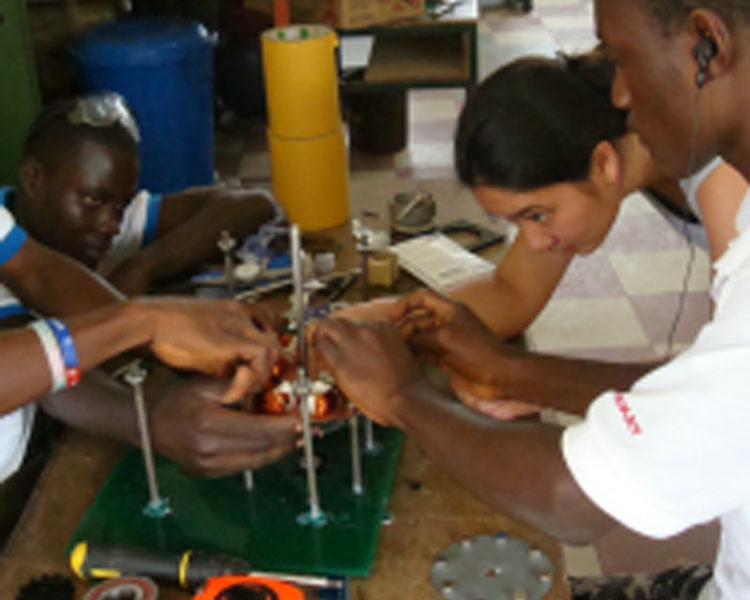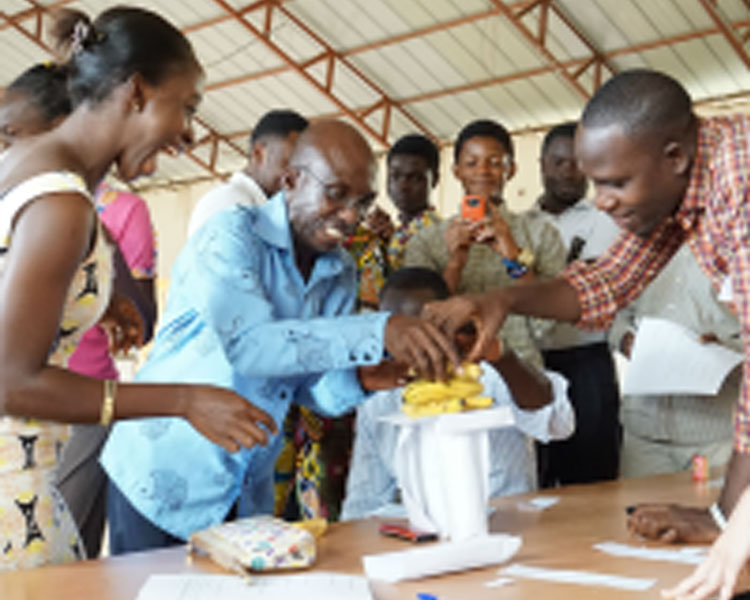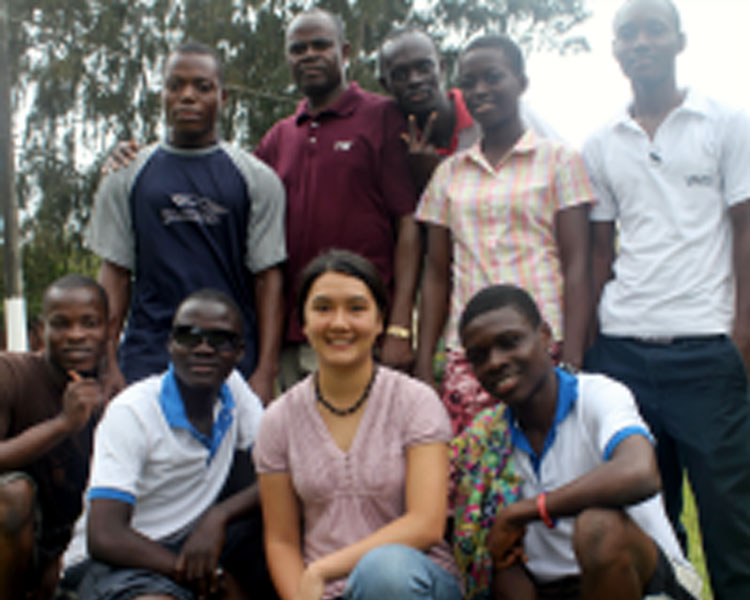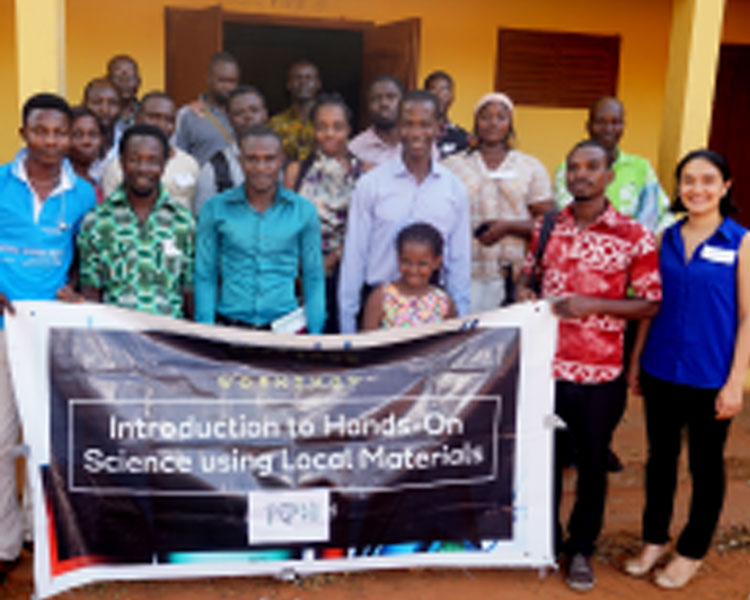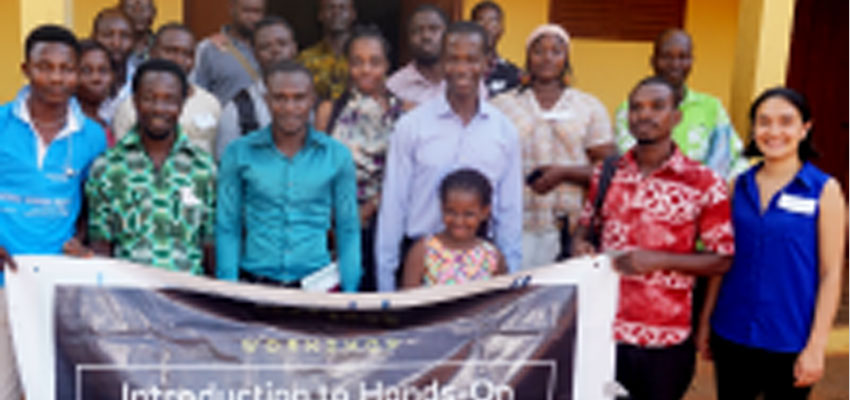
Heather Beem completed a PhD in Mechanical Engineering at MIT in 2015. She has been involved in D-Lab in such a variety of ways that we consider her an alumna, though "associate" might be a more appropriate term! She was twice co-instructor for D-Lab: Education, has mentored teams in D-Lab: Energy and D-Lab: Design, and led a student trip. This fall, she is co-instructing D-Lab: Discovery. Heather is co-founder and chief executive officer of the Practical Education Network, run by a team which, in addition to Heather, includes several D-Lab alumni and a former instructor.
---------------------------------------------------------------
Came for the PhD, left with working with science educators in Ghana
In what is perhaps true D-Lab style, my journey has avoided most traditional paths. I came to MIT for the Ph.D. program in Mechanical Engineering. I left with a doctorate in hand and desire in heart to work with science educators in Ghana.
A passion for learning-by-doing
Soon after arriving on campus, I began hearing bits and pieces about D-Lab, so I wandered over and took a tour. The rooms were tucked out of sight, but bustling with activity and an unusual sense of possibility, which struck me.
As I dove deep into my graduate research, I began building a strong desire to share what I was learning with others. I found some other students thinking along similar lines, and we joined forces and created Practical Education Network (PEN). We built a vision of sharing the MIT-style learning-by-doing as widely as possible. What if youth everywhere became local innovators, designing and building solutions to their own challenges?
We tested different ways of engaging youth in hands-on science and engineering: running science fairs, teaching students to build solar powered lamps, writing curricula, and sharing it with educators from Ghana to Peru and Boston. In 2011, I made my first trip to Ghana, where I worked with students at the Takoradi Technical Institute (TTI) Fab Lab, a community partner connection from a D-Lab class that my teammates participated in.
Through these efforts, our eyes were opened to the potential for work in this space of development and education, so we looked for ways to engage the larger MIT community in tackling these challenges.
We approached D-Lab, found like-minded colleagues with similar goals, and we collaboratively developed the D-Lab: Education course. Co-instructing that class began my official involvement with D-Lab, and marked the start of a slew of experiences there, including trip-leading, mentoring, and co-teaching various classes and teams.
Leading the Practical Education Network
Since graduating, I’ve been leading PEN’s efforts to scale hands-on science. I am just returning from Ghana, where we ran trainings with more than 300 science teachers around Greater Accra, sharing ideas for using local materials to teach experientially. The responses were positive, the potential for scale is big, and I eagerly envision the possibilities ahead.
From all of these experiences, I have tasted the joy of using engineering and design to build simple solutions to real problems. Collaborating with and learning from real people has developed into a necessary dimension of my work. And perhaps most important, that sense of possibility that first struck me is something I have now been able to share with many others.
